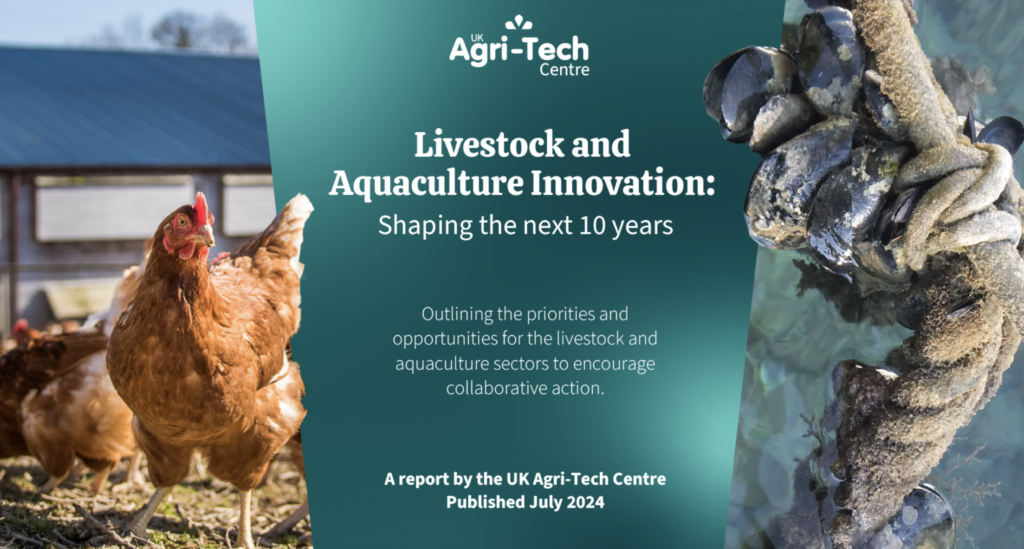The UK Agri-Tech Centre has set out 11 research and innovation priorities to boost sustainability and resilience for the livestock industry.
Looking into the future, the UK Agri-Tech Centre, which aims to deliver whole chain, science-based solutions for agriculture across the UK, has outlined what it believes are the key areas of research and innovation over the next 10 years in a new report, ‘Livestock and Aquaculture innovation: the next ten years‘.
The priorities, developed with input from over 150 stakeholders, link to the centre’s themes of One Health, Sustainable Production, Resilient Systems and Intelligent Agriculture. They include:
- Animal health and welfare
- Food safety, quality and nutritional content
- Climate-smart solutions, ecosystem and biodiversity improvement
- Optimised diets, land performance and systems
- Productivity, data assets and technology.
Across livestock species, sector level priorities have been identified. For the pig sector there are a number of critical areas mentioned covering enhanced environment for pigs, climate mitigations or adaptations, extending productivity and welfare from birth to slaughter.
Phil Bicknell, UK Agri-Tech Centre CEO, outlined the potential for the report to act as a catalyst for stakeholders across the supply chain to ‘come together and explore solutions for livestock and aquaculture sectors’.
“The steps we take now will shape the future, addressing pressures in areas such as animal health and maximising opportunities in others,” he said.
Animal health and welfare
Animal health and welfare stood out as two of the priorities among key stakeholder contributions for pigs, who want solutions for endemic and exotic diseases such as porcine reproductive and respiratory syndrome (PRRS) through vaccines. They also want to see reduced antibiotic use with rapid diagnostic tools and a focus on longevity in the breeding herd by improved health metrics.
For pig welfare, the report focuses on housing design to maximise the genetic potential of the pigs. This includes effective and sustainable free-farrowing systems and using sensors and artificial intelligence (AI) to give real time welfare information to producers.
Dr Grace O’Gorman, UK Agri-Tech Centre’s head of external relations highlighted the importance of implementing these priorities.
“The livestock and aquaculture sectors face multiple challenges from the increasing demand for food and pressure to reduce and reverse environmental impact,” she said.
“This report is a fundamental approach to tackling innovation over the next ten years and beyond, by connecting science, business, funders and policymakers, we will build on the shared priorities raised in this report and identify opportunities with our stakeholders to drive impactful change.”




